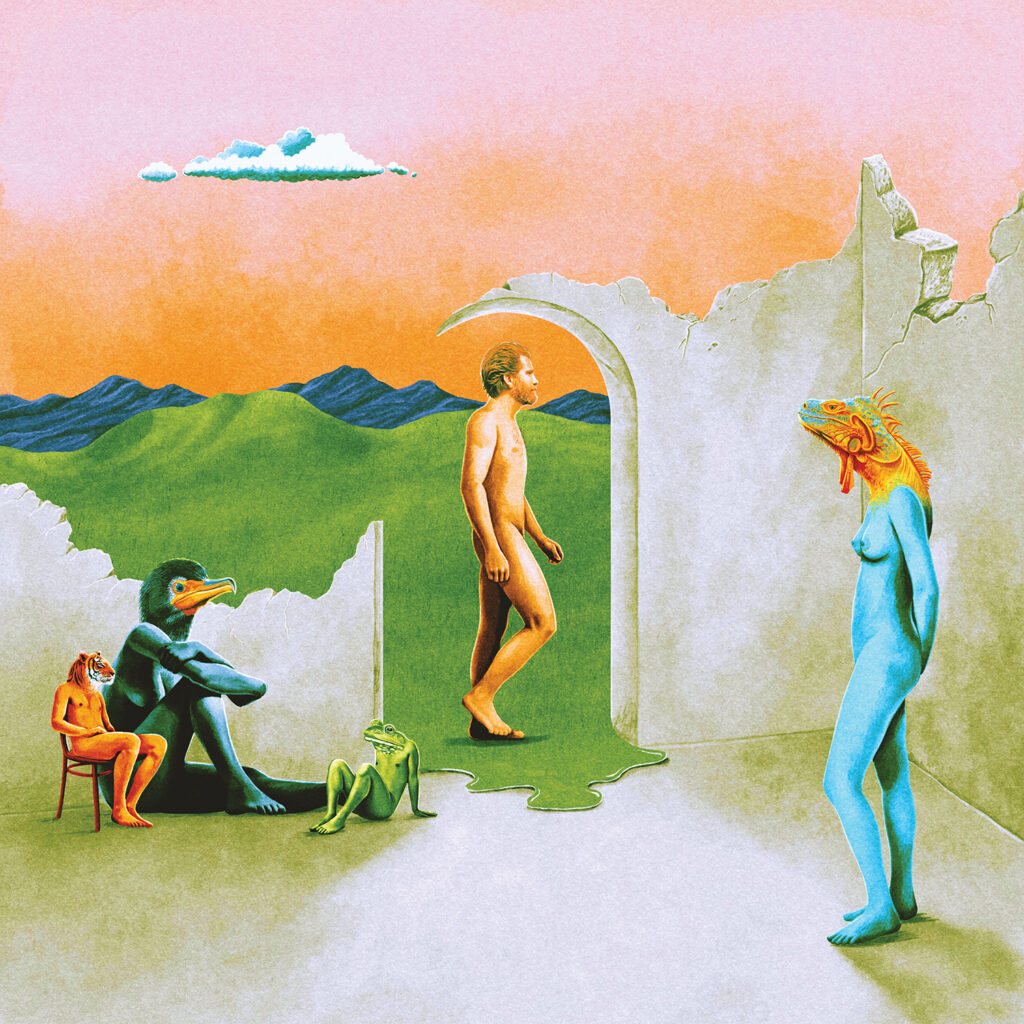
For the last five years, Joe Westerlund’s music has explored and documented his personal unknowns. Before the 2020 release of his solo debut, Reveries in the Rift, Westerlund was largely a band guy, whether that meant charting the edges of folk-rock with his childhood friends in DeYarmond Edison and, later, Megafaun, or offering the anchor to acts like Watchhouse and The Dead Tongues. But on Reveries, he wondered what it would be like to make meditative percussive music, to wander into the middle distance of his own introspection with his drum kit. Some of those findings reappeared on 2023’s lauded Elegies for the Drift, where he stared into several painful ends—of a 20-year partnership and the death of multiple friends, collaborators, and mentors—and tried to send those relationships off with sound. These were largely open-ended and improvisational albums, Westerlund paying less attention to sheer rhythmic patterns than emotional frameworks.
During the same half-decade, though, Westerlund became engrossed in studying the clave, the metric pattern that first defined so much Afro-Cuban and Latin music and then drifted into almost every corner of jazz and rock. What did it mean for an idea to be so flexible, for it to fit so many forms while retaining its own essence? His interest in composing with this new musical curiosity—that is, in constructing grooves that felt instinctual and irrepressible—compounded amid the pandemic, when people desperately wanted to remember what it was like to inhabit their bodies in a room crowded by strangers. The result is another leap into the unknown for Westerlund: Curiosities from the Shift, a 12-track playground of endlessly interwoven beats and melodies, where Westerlund’s clave enthusiasm collides with his textural experimentalism, where his rhythmic symphony of one shakes hands with a half-dozen friends decorating this space alongside him.
Curiosities began taking accidental shape when Califone mastermind Tim Rutili asked Westerlund for a few ideas amid lockdown. Westerlund had been playing in Califone for years, and Rutili was hoping a long-distance beat might spark a song. Nothing concrete came of those sketches, as Rutili pursued other paths. So Westerlund went his own way with them, instead, steadily building those ideas into his own compositions. They are now the basis of the three-piece suite that holds Curiosities’ first half, beginning with the junkyard percussion and delightful bass splashes that frame “Tem” and ending with the surrealistic boom-bap of thumb pianos and shakers on “Can Tangle.” There is a hard-won joy to these numbers, as if Westerlund is delighting in real time in spotting a potential dead end but finding his own way forward, anyway.
Those songs became, too, a kind of working roadmap for the terrain that Westerlund explores across Curiosities, from the call-and-response glory of opener “Nu Male Uno” to the uncanny amorphousness of closer “Felt Like Floating.” All of these songs are defined by an identifiable rhythm, like the loping strut at the center of “Midpoint” and the head-nodding pulse that winds through “Persurverance,” winkingly misspelled to suit his North Carolina-via-Wisconsin pronunciation. But those are springboards for other textures, moods, and notions, like the New Age references—shimmering metallophones, chattering birds, retiring flutes—that circle through “Midpoint” or the dub-indebted delays and gamelan hymns that bubble up through “Persurverance.” This is deeply multivalent music, each number’s propulsive core counterbalanced by a series of surprising choices. Bittersweetness and joy, grief and liberation, sighs and smiles: It all exists here, tangling toward infinity.
This complexity stems, in part, from a happy accident. Late in 2023, around the time of his 43rd birthday, Westerlund booked a week of studio time at Betty’s, the bucolic space built and operated in the North Carolina countryside by his friends and occasional collaborators in Sylvan Esso. He meant to be there for five days before embarking on a brief tour with Setting, the essential instrumental trio that has become a key outlet for his improvisational vim. But after a Setting bandmate got sick, Westerlund booked another five days alone at Betty’s, giving himself time, space, and quiet to keep finessing these compositions, to see where else his assemblages of metallophones and drums, electronics and keyboards might lead, what magic they still had to reveal.
When, for instance, he took a break outside while recording “Elegy (for OLAibi),” a tribute to late Japanese experimentalist Ai, he noticed that the air-conditioning seemed to be sighing in time to the music he was making inside. He recorded the sound and wove it into the track. It is now one layer among so many, one feeling amid a diorama of them. In the months after those sessions were done, Westerlund reached out to seven friends—Califone’s Rutilli, saxophonist Sam Gendel, trumpeter Trever Hagen, and violinists Libby Rodenbough and Chris Jusell among them. Sure, these were his most thoroughly composed and precisely built works ever, but he wanted to hear what happened when his pals responded in real time, when they added bits of themselves back to what he’d made. They delivered grace, depth, and feeling, with their parts pulling back curtains on hidden recesses of Westerlund’s rhythmic worlds.
Westerlund readily admits he is surprised by Curiosities from the Shift, by its insistence on groove and meter rather than drifting abstraction. Having lived and worked so long in the trenches of bands, he assumed he was done functioning within basic meter, at least for a while. But music is, of course, rarely a binary, where one element obviates all room for the other. These 12 songs fuse so many of Westerlund’s loves into pieces that are endlessly fascinating, using familiar elements to, once again, render another of his adventures into the unknown. Playful but tender, wistful but wondrous, driven by beats but not bound by them, Curiosities from the Shift is Westerlund’s definitive statement so far, the solo drummer record that opens wide to reveal a musical and emotional landscape richer than perhaps even he imagined he might find.
-Grayson Haver Currin